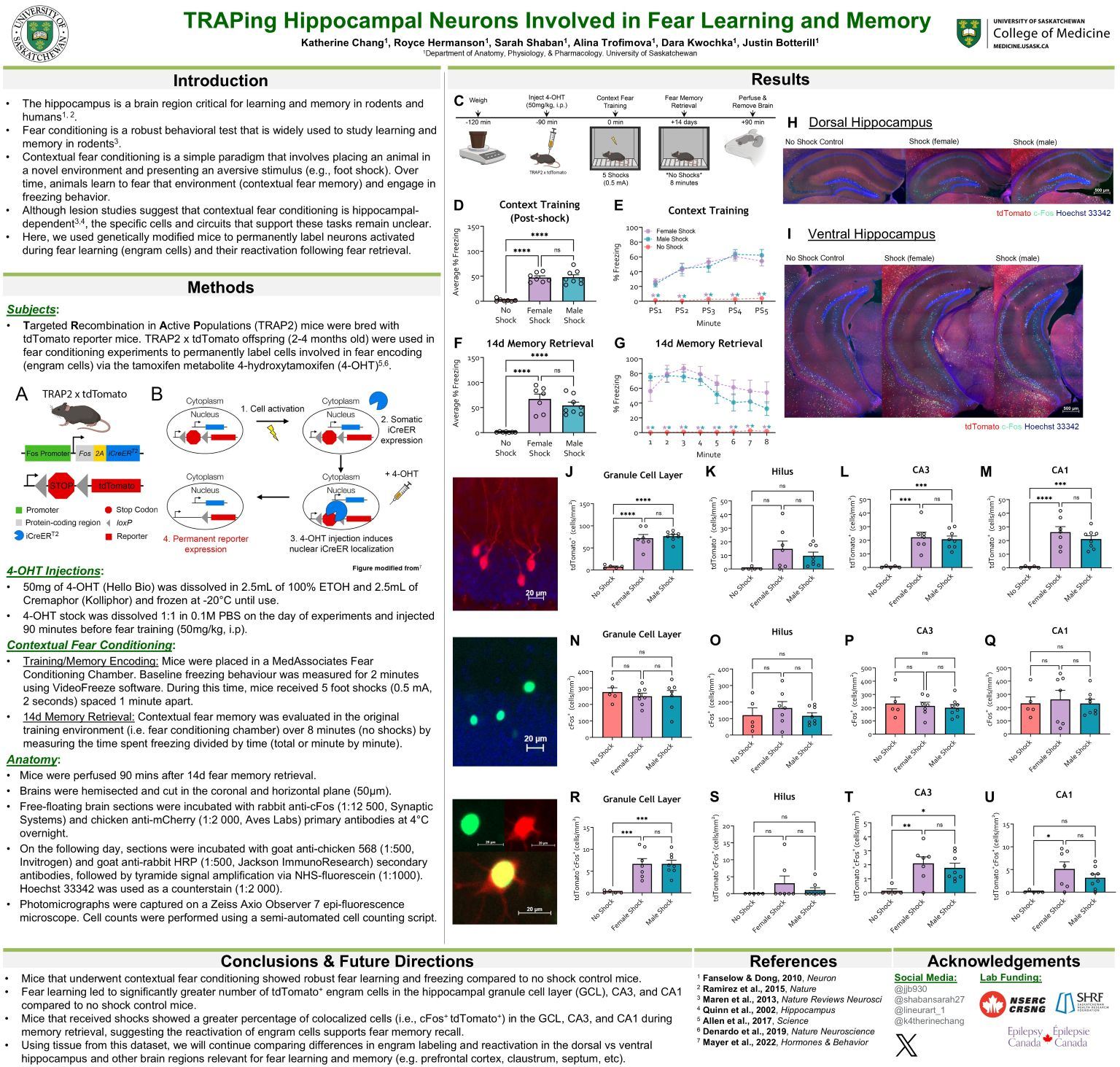
TRAPing hippocampal neurons involved in fear learning and memory
Katherine Chang
Contextual fear conditioning is used to study learning and memory in rodents. While previous studies suggest that the hippocampus is important for contextual fear memories, the brain circuits involved in encoding and retrieving fear memories are not fully understood. Here, we used TRAP2xtdTomato mice to investigate freezing behaviour and neuron activation after foot shocks. Mice were placed in a fear conditioning chamber and administered foot shocks. 14 days later, mice were placed in the original training environment without foot shocks. Fear memory retrieval was assessed by time spent freezing. Semi-automatic cell counting scripts were used to quantify the cells involved in encoding, retrieval and both timepoints. Foot shocks significantly increased the density of neurons (cells/mm^2) activated during encoding and both timepoints compared to control mice in the granule cell layer, CA3, and CA1. Foot shocks did not significantly increase the density of neurons activated during retrieval compared to control mice. Results suggest the hippocampus is involved in fear memory encoding. Moreover, results suggest the retrieval of encoded fear memories does not increase total neuron activation but rather, a greater proportion of neurons activated during retrieval will be neurons involved in encoding fear memories compared to control mice.
